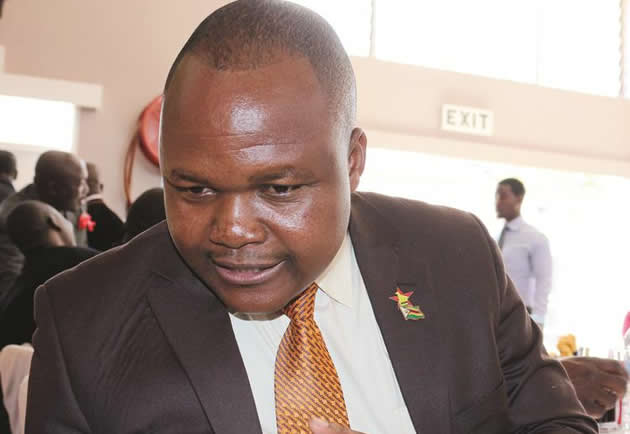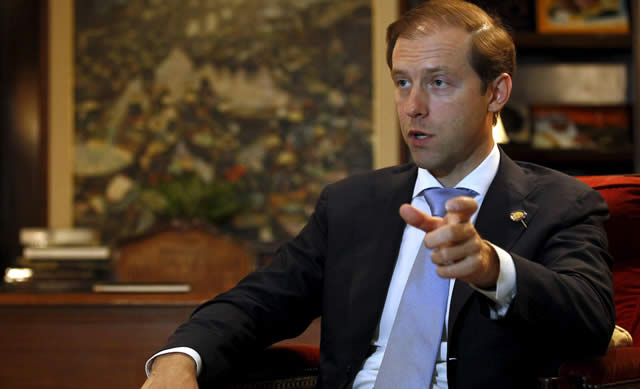Ministers clash over STEM

Zvamaida Murwira Senior Reporter—
A public spat has erupted between two Government ministers over the implementation of the Science, Technology, Engineering and Mathematics (STEM) initiative being driven by the Ministry of Higher and Tertiary Education, Science and Technology Development. Dr Lazarus Dokora leads the Primary and Secondary Education Ministry, while Professor Jonathan Moyo superintends over the Higher and Tertiary Education, Science and Technology Development Ministry.
Primary and Secondary Education Deputy Minister Professor Paul Mavima this week launched an attack on his counterpart in the Ministry of Higher and Tertiary Education, Science and Technology Development Dr Godfrey Gandawa in an article published in The Herald on Wednesday over their implementation of STEM.
Prof Mavima was responding to an earlier article by Dr Gandawa in The Sunday Mail, where he unpacked STEM, detailing how it could help the country advance. In his article, Prof Mavima accused the Ministry of creating an impression that STEM implementation was a new phenomenon when Government had established several tertiary institutions to promote the learning of sciences.
Prof Mavima said funding A-Level students studying science subjects, as the Higher Education Ministry was doing, was misplaced as such students would already have made a choice without school fees incentives.
He said STEM was skewed in favour of well-to-do schools, ignoring poorer learning centres in remote parts of the country which did not have laboratories and other science-related infrastructure. Dr Gandawa reacted angrily yesterday to Prof Mavima’s article, saying he should have used the right Government forum. He said he would not have been worried if the article had been written by an ordinary member of the public and not a senior Government official.
“I would not be happy to attack another Government Minister or engage in a media war because we have platforms to discuss. My colleague has attacked me and the Ministry and I wonder which Government he is serving. If you go through my article I did not attack the Ministry at all but complemented their curriculum review. I am perturbed and am beginning to suspect that he has an ulterior motive. Suffice to say that I have never been a member of the opposition party,” said Dr Gandawa.
He said his Ministry’s interest was on school leavers and that included those who would have written Ordinary Level. Suggestions that they should start earlier would mean them assuming the responsibilities of another Ministry.
In his article, Prof Mavima said by assisting A Level students, the Higher Education Ministry was “missing the boat,” because such students would already have chosen to do sciences and suggested that STEM should start at infant level.
“So the current initiative is akin to a priest or pastor who is so content on maintaining their current flock of believers and does not bother to get out and convert new worshippers,” argued Prof Mavima in his article. He said poorer schools in remote areas would be left out in favour of mission, urban and Trust schools which could afford paying fees.
Prof Mavima said the Higher Education Ministry had created an impression that STEM was a new discovery when Government had over the years set up universities and poly-technical colleges to teach sciences.
“What is really surprising is that, by his simplistic definition, which essentially says it is the teaching and learning of STEM, Zimbabwe has made considerable strides at both levels of education in promoting STEM,” he said. Zimbabwe Council for Higher Education chairperson Professor Christopher Chetsanga, said ideally it would be good to begin implementation of STEM at O Level although Government had found it prudent to start at A Level because of financial challenges.
He said promotion of STEM was proper because the uptake of sciences at universities stood at 30 percent.
“Ideally, it should start at Ordinary Level. But it is not exciting to support Ordinary Level because the money can go to waste when people fail. That way it becomes expensive. As chairperson of ZIMCHE, we are not getting many students in sciences and technology at universities. Graduation of STEM degree students stood at 30 percent and universities like NUST end up taking arts students,” said Prof Chetsanga.
Engineering Council of Zimbabwe chairperson Engineer Martin Manuwa, said STEM implementation should be a value chain at all stages. “It should start earlier at different levels and for different purposes. Even as we go up the ladder it can continue even after university level to suit certain needs. Both Deputy Ministers are correct. The problem is that we do not have a policy on STEM,” said Eng Manuwa.
Eng Manuwa said fewer science students had been qualifying for local universities. “Citing the recent statistics where only 13 percent of those who qualified for A Level or 2,500 students were STEM qualified for admission into our universities in 2015, gives us sleepless nights. Zimbabwe will never be industrialised at this rate even if our economy miraculously recovers. We need to accelerate the appetite for development through STEM,” said Eng Manuwa.
“A matter of warning, STEM and innovation eco-systems should not be stand-alone processes but should be integrated into society through partnerships by creating strong links between science, policy and society.”









Comments